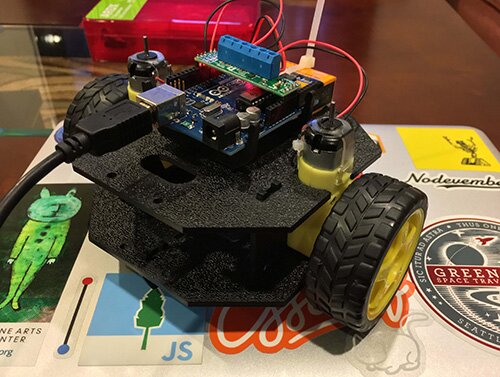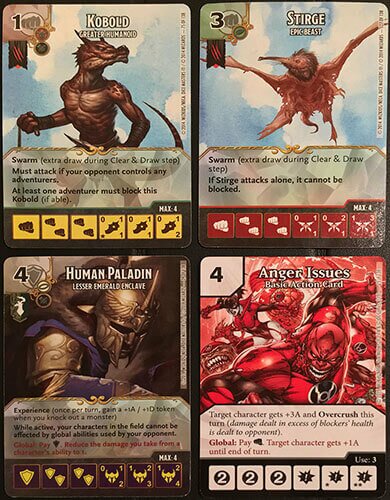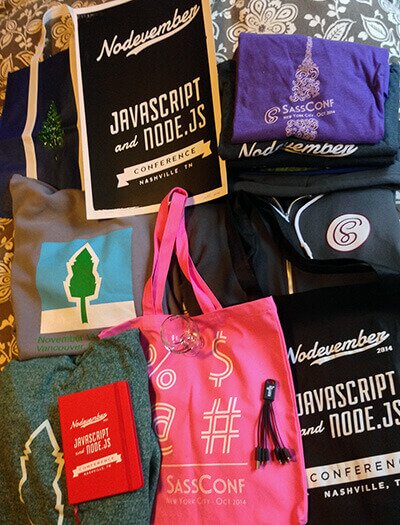How a Code of Conduct Works.
6.29.2016
Bottom line - your events (from meetup to conference) and even your open source projects need a code of conduct. What is a code of conduct?
- It is an explicit statement about what is - and isn't - appropriate in your space. It sets a social contract that every attendees agrees to, and encourages active enforcement of that social contract.
- It is a promise from you (the organizer) to me (an attendee or speaker). If you break that promise, I am 100% free to leave your project / event without any repercussions.
- It compels a response, even when the organizer would rather ignore a situation.
Let me tell you precisely how a code of conduct works to change interactions during an event.
Last year, I attended a conference as a workshop volunteer. After the workshop, a speaker from the previous day wanted to ask me some follow-up questions about the workshop. While he spoke a little English, he wanted me to step outside to the plaza where his translator was. I agreed.
Let's review the power dynamic here: me = unimportant volunteer, him = very important speaker.
He was from a country where (I suppose), it's common for men to escort women by leading them by the elbow. While we were walking outside, he put his hand on my elbow, and I (being perfectly capable of finding the doors outside) removed it. He again put his hand on my elbow and tried to lead me towards the door. I again removed it, and looked him directly in the eyes and said "no". I then stomped through the doors and found the translator. With the help of the translator, the speaker apologized if he had offended me. I said that I was fine and I answered his questions from the workshop.
Here is how the conference's code of conduct worked: I knew that - regardless of any power imbalance - the conference had my back. I was empowered to enforce my own boundaries and I did so. I was a bit irritated by the incident, but I took care of it myself. Situation resolved, no escalation, no problem. That's how a code of conduct works.
5.22.2016
I'm curating CSS Day at this year, and earlier this month we finished our speaker selection process. Since I've evaluated hundreds and hundreds of proposals for CascadiaFest, I thought I'd share what I'm looking for when I evaluate a talk proposal. At CascadiaFest, our selection process is masked; we do most of the evaluation before revealing the identity of the person who wrote the proposal. (Though it's sometimes possible to guess who has submitted the talk.) Naturally these thoughts are only about my process, and do not represent any other curators or selection committee members.
-
Does the proposal give me a sense of what you'll actually be talking about on stage?
Screen writers are often told "If it ain't on the page, it's not on the screen." Films and plays often follow the advice to "show, don't tell". Once I watched an episode of "Next Food Network Star" (or something like that) and the experienced host gave this advice to the contestants: "Don't describe the food as 'delicious', 'yummy', or 'fantastic'. Use words with meaning like 'chocolaty', 'tender' or 'flaky'."
All of these ideas apply to writing talk proposals too. I'm not going to infer things that you haven't mentioned in your proposal. Don't tell me that you're an awesome speaker; show me with previous talks. Use words that are clear and descriptive.
Pretend your reviewer is on an international flight with no wi-fi, and can't look up "polymorphic". (True story.) No one should have to read 3 articles to understand the core concept of your talk - you should be explaining it.
-
Does the proposal convince me that you can pull this talk off? Does it demonstrate knowledge of (or passion for) the topic? Don't rely on a bunch of keywords and memes in your proposal; tell me about your history with the topic, or the insights that you've had.
Can you expand on the techniques you intend to discuss? How will your solutions stand out from others in the same space? If your proposal asks some questions, include some answers to those questions to demonstrate that you've got a useful perspective on the topic.
-
Does the talk proposal boil down to "Getting Started with XYZ" where XYZ is some framework or tool? These talks have their place, but I'm really not a fan of them. I look at how relevant your talk will be to people who are not using that framework, because the majority of the audience at CascadiaFest is not using your favorite framework.
-
Use your very best written English. Organizers often see that the care taken in writing the proposal reflects the care taken in preparing for the talk. Get someone else to proofread your proposal - buy dinner for your friend with the snootiest grammar sensibilities, or exchange proofreading duties with someone else submitting a talk. Proofreading your own talk is just as difficult as security-testing your own software.
12.28.2015
If you're organizing a conference, one of the most important tasks is selecting speakers who will give unique and interesting talks to your attendees. But you've also got your budget to worry about...
Whether or not you can pay for your speakers' conference ticket and travel costs is one of the biggest factors in determining who can speak at your conference. There are few types of people who are generally more able to speak at conferences than others. To illustrate this, let us take a look at Earth 517, where StickerConf (the nation's most prestigious annual conference for sticker designers and developers) has just opened their speaker application process. These are some of the people who are thinking of applying:

Logan
Logan is the best there is at making stickers, bub. His sticker consultancy has been in business for decades and he is a common fixture at conferences. He is a popular speaker, but his well-worn talks always seem to cover the same material.
Just like last year, Logan will apply to speak at StickerConf, and will pay travel and ticket costs with his company's finances.

Scott
Scott is a committed single father. As a widower, he is the sole wage-earner and caretaker for his children Rachel (4 years old) and Nathan (1 year old). Scott's independent shop has been a leader in the sticker-making industry since the beginning, but these days he only has time for two things: parenting and making stickers.
Scott can't afford to pay his own way to StickerConf; there are college funds which need to be filled. Taking days off from his work to prepare a talk and to speak at StickerConf is already a significant commitment. If StickerConf won't cover his travel and ticket costs, Scott won't apply to speak.

Ororo
Ororo is an industry longtimer and senior director at the largest sticker factory in the US. Her first priority is her career and managing her team at the sticker factory. The factory doesn't cover conferences, so she uses her own vacation time to attend and speak at a few conferences each year. Due to her busy schedule, she often neglects her own personal time.
Having already agreed to speak 2 other conferences this year, Ororo has room for perhaps one more new talk in her schedule. She will apply to speak at StickerConf if her costs are covered, but otherwise is considering taking a real vacation.

Hank
Hank is a tenured professor at a university where he teaches several courses on sticker making. He has a well honed stage presence, and years of experience teaching the traditional and theoretical methods. However, without any real world experience, his talks haven't changed much over the years.
Hank gets ample time off during school breaks, and a yearly stipend from the university for conferences and travel. He enjoys learning new things at StickerConf, and will apply to speak every year.

Warren
Warren is an entrepreneur who founded StickrIO a few years ago. He has managed to speak at a few conferences in the past year, and he has had a really great time talking to the community and increasing awareness of StickrIO.
Warren will apply for every speaking slot he can find, polish up his slide deck in the week before the conference, and StickrIO will pay his travel costs.

Kitty
Kitty is attending state college on a full ride scholarship, and next year she will graduate with a degree in Sticker Sciences. As a full-time student with no parental support, she is broke as heck. But she is heading straight towards a career in sticker making and has been watching StickerConf's talk videos on YouTube for years.
She would like to share her fresh perspective with the professional sticker community; as well as to meet all the people that she has admired from afar. A quick peek ahead in Earth 517's timeline shows that one face-to-face conversation with Scott will give Kitty an insight which enables her to complete the breakthrough new sticker adhesive that she's got brewing in the school lab. But if StickerConf won't cover her ticket and travel expenses, Kitty can't speak.
Based on these profiles, if StickerConf does not cover travel and ticket costs for their speakers, they will only receive talk proposals from Logan, Hank, and Warren. However, if StickerConf is able to cover speakers' costs, they will have a much wider variety of talks to choose from. In fact, the lack of expense reimbursement tends to play a larger role in talk submissions for under-represented people than it does for those who are not.










